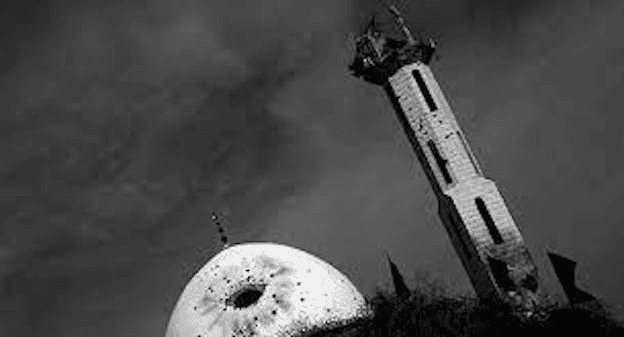DispatchesThe great divide we are witnessing today in the Middle East is, in part, the result of European interference.
As a child of the Levant, I feel the pain and anguish generated by almost a century of conflict. My family was a victim of the great divide that opened up in the Middle East after Europeans dismantled the remnants of the Ottoman Empire, drew lines in a land previously defined by close-knit communities of different faiths, and then decreed how its people would be corralled into states defined by faith and ethnicity.
Never has such meddling and machination wrought so much human suffering.
My mother’s Italian Jewish forbears, who fled Europe to escape prejudice and inequality, abandoned their faith in return for a prosperous existence in Egypt and intermarried with Catholics. My father’s Palestinian ancestors embraced a faith offering security and patronage under the umbrella of the Greek Orthodox church.
There was no question of enmity, only the utility of one identity or another to subsist and survive, often quite comfortably in a pluralistic setting. Muslims, Christians, and Jews in the Levant lived in affable proximity, squabbling over sacred territory and ritual primacy, yes, but nevertheless rubbing along.
The first sign of trouble emanated from Europe when the fascists of Italy and Germany tried to set Arabs in Egypt and Palestine against their British colonial masters. It was an argument over hegemony, not faith. The Arab Revolt that erupted in Palestine in 1936 was a protest against colonial rule. It was ruthlessly suppressed. The antisemitic pogroms and persecution taking place in central Europe were barely heard of. No Jew in the Old City of Jerusalem was told to leave, forced to wear a yellow star, or herded into concentration camps.
In fact, it was the British who put members of my Italian family in camps along the Suez Canal. Not because they were Jews, but because they were Italian and suspected of being fascist sympathizers.
The extent of the ignorance about antisemitism in Europe was such that three Jewish members of my mother’s family returned to Italy just as Germany was occupying their hometown of Florence in 1943. There they were hounded and threatened with being turned over to the Gestapo by unscrupulous Italian gangsters until, in desperation, they committed suicide, smothering their two-year-old daughter before slitting their own wrists.
That was the extent of my family’s exposure to antisemitism—in Europe, away from the relative comfort and security of the Middle East.
Then, 1948 happened. In the blink of an eye, the Levant was torn asunder. At university in Cairo, my father recalled being completely cut off from his family in Haifa. He had been accustomed to catching a train from Haifa to Cairo, as if it was from London to Paris, but suddenly the sinews of communal integration and interaction were shredded by a single vote at the United Nations. No one quite believed what had happened.
My grandfather in Haifa remembered receiving a group of his Arab colleagues at home. They were carrying small overnight bags on their way to Beirut, a two-hour drive north. They said they expected to be away for a few days before the Arab armies arrived to liberate them. Eighty years later, they have yet to return. My grandfather, born and raised in Palestine, was forced to leave for Greece, the country of his father’s ancestry, in which he had never set foot. He described himself as a refugee.
So, when I hear casual judgements about the current crisis through the lens of antisemitism, I recoil. I understand why Egyptian President Abdel-Fattah al-Sisi reminded U.S. Secretary of State Anthony Blinken not to bring European perceptions of the Jews to the Middle East.
The conflict we see today, with all its brutal tribal dimensions, is an import—a legacy of foreign intrusion and interference, not something born of a land where all the Abrahamic faiths once thrived alongside one another, worshipping at their sacred sites, one on top of the other, a compressed pile of ancient masonry rubbed smooth and burned black by centuries of ritual devotion.
In 2019 I travelled to two holy Christian sites that two of my great uncles helped restore and revive after centuries of ruin and neglect under Ottoman rule. One of them is a monastery near Bethlehem built over a grotto said to have been where the three Magi stopped on their way to see the baby Jesus; the other is set along a stretch of the Jordan River where John the Baptist allegedly baptized Christ, and indeed where my father was baptized, earning him the title Hajj in the Greek Orthodox faith.
Reflecting on the ritual significance of the buttery yellow stones that gird these holy sites, glowing gold in the late afternoon, I concluded there can be no contest over who owns them. For they are important waypoints in the evolution of our collective identity—Semites all, Jews who became Christians, and eventually Muslims, in a sequence of monotheistic evolution that defines Western civilization today.
*Michael Vatikiotis, a writer and author of Lives Between the Lines: A Journey in Search of the Lost Levant, was interviewed by Diwan in November 2022.

